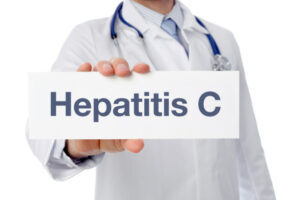Hepatitis C is a viral infection that primarily affects the liver, and if left untreated, it can lead to serious health complications, including liver cancer and cirrhosis. While the idea of a liver disease can be frightening, the good news is that Hepatitis C is curable for over 95% of people with modern treatments. The first and most crucial step in this journey to a cure is accurate diagnosis and monitoring, which is accomplished through a series of specialized blood tests.
Understanding these tests and what your results mean is vital for anyone who has been exposed to the virus or is at risk. This guide will walk you through the different types of blood tests used in Hepatitis C care, explaining their purpose and importance every step of the way.

The Role of Blood Tests in Hepatitis C Care
Blood tests are the primary method for screening, diagnosing, and monitoring Hepatitis C infection. A single blood draw can provide a wealth of information, guiding healthcare providers from initial suspicion of the virus to confirming a cure. The testing process typically involves a sequence of different tests, each with a specific function.
Key Blood Tests for Hepatitis C
There are three main types of blood tests used in Hepatitis C care:
1. The HCV Antibody Test
The first step in diagnosing Hepatitis C is almost always an antibody test. This test, often referred to as the anti-HCV test, looks for antibodies to the Hepatitis C virus in your blood. Antibodies are proteins your immune system produces in response to an infection.
- What it tells you: A positive (or “reactive”) result indicates that you have been exposed to the Hepatitis C virus at some point in your life. It does not mean you have an active, current infection. Up to 25% of people naturally clear the virus from their bodies, but they will still test positive for antibodies forever.
- What to do if it’s positive: If your antibody test is positive, the next step is to get a viral load test to determine if you have a current infection.
2. The HCV RNA Test (Viral Load)
If your antibody test is positive, your doctor will order an HCV RNA test. This is the test that confirms whether the virus is currently active in your body. It detects and measures the actual genetic material (RNA) of the Hepatitis C virus.
- Qualitative Test: This test is a simple “yes” or “no” answer. It tells you if the virus is “Detected” or “Not Detected” in your blood. If it’s detected, you have an active infection and need treatment.
- Quantitative Test: Also known as a “viral load” test, this measures the exact amount of virus particles (measured in IU/mL) in your blood.
While the viral load doesn’t predict the severity of your liver disease, it is essential for monitoring your response to treatment. During treatment, a falling viral load indicates that the medication is working.
3. The HCV Genotype Test
Once an active Hepatitis C infection is confirmed, a genotype test is performed. There are at least seven different strains, or genotypes, of the
Hepatitis C virus. Knowing which genotype you have is crucial for your treatment plan.
- Why it’s important: While most modern direct-acting antiviral (DAA) medications can treat all genotypes, some treatment regimens may still be tailored to a specific genotype or may require a longer duration. Genotype testing ensures you receive the most effective and personalized treatment available.
Conclusion
Navigating a Hepatitis C diagnosis starts with a simple blood test. From the initial antibody screening to the confirmatory viral load and genotype testing, each step provides critical information that empowers you and your healthcare team to make informed decisions. A positive test result is no longer a life sentence but a call to action. With highly effective oral medications, a cure is within reach. By understanding your test results and working closely with a healthcare professional, you can take control of your health and embark on the journey toward a life free from Hepatitis C.
Frequently Asked Questions (FAQs)
1. Who should get tested for Hepatitis C?
The CDC recommends that all adults aged 18 and older get screened at least once in their lifetime. Repeat testing is recommended for individuals with ongoing risk factors, such as those who inject drugs.
2. Can I get a false-positive or false-negative result?
False-positive antibody tests are rare but possible. A false-negative result can occur if you get tested too soon after exposure, as it can take a few months for antibodies to develop. A follow-up RNA test is always the best way to confirm an active infection.
3. Will my viral load always be high if I’m infected?
Your viral load can fluctuate, but it doesn’t correlate with the severity of liver disease. The main purpose of the viral load test is to confirm active infection and monitor your response to treatment.
4. Will I still be positive on the antibody test after I’m cured?
Yes. Even after successful treatment, the HCV antibody test will remain positive for the rest of your life. This is why the viral load (RNA) test is used to confirm that the virus has been cleared.
5. How long does it take to get my results?
Results for the initial antibody test can be available in a few days. The viral load and genotype tests may take a little longer, typically one to two weeks, depending on the lab.
For a personalized health assessment and to learn if testing is right for you, we invite you to visit our website https://www.tscoaklawn.com/medical-services/services/hepatitis-c-care/ or call us (469) 496-2454 directly. Our team of specialists is ready to help you on your journey to a healthier you.
